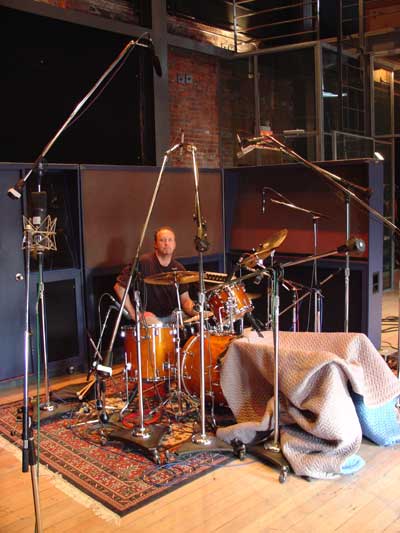April 5, 2014

*MY INSIGHTS:*
Being exposed to all types of music, including melody and harmony are more connected to being a successful drummer than most drummers realize. This is true especially if you are going in cold to sessions and attempting to efficiently interpret a producer or songwriter’s music, all the while striving to bring your musicality and sensitivity to the material.
Of course the term ‘sensitivity’ to the material can also mean that your ‘interpretation of the music’ means that you shred your butt off. However it may also challenge your lighter touch such as your use of space or brush usage etc.
This gets into the fine-tuning of song interpretation which we will discuss.
I was 14 when I seriously started playing drums. My personal road involved
many private lessons and some great teachers, as well as many, many hours of practice. I start gigging professionally when I was 20. The first gig I did was in a little pub and I look back and remember how nervous I was before that gig. It’s funny to think about now.
From that point on I played in many local bands for a number of years doing 6 nighters, which unfortunately don’t exist anymore at least in this part of the world. It was great experience and taught me many things that can only be learned ‘on the job’ from the repetition of doing long term gigging.
Simultaneously when I was 22 I had the very good fortune of connecting with a small recording studio/record company. The quality of the productions, which were all pressed to vinyl, was very low. However that experience was invaluable for me. This is where I first started to hone the craft of studio drumming. The first projects I played on shone a blazing light on my lack of experience and my inconsistencies! Even more blatantly it showed up my complete disregard for the music and my constant overplaying!
But we all have to start somewhere and for me this little studio and all the projects I did for no charge of course, were my humble introduction to the art of studio playing.
A very long-time friend, a recording engineer that I met at that studio became one of my best friends and one of the most honest mirrors and helpful critics of my playing. He was the first to point out to me that my meter and my time were in great need of study and practice.
Hah! That’s putting it nicely! I remember his real words were “Your time sucks!”
From those meager recording projects I was involved in, I could now clearly hear the issues I had to resolve in my playing. My buddy made me an electronic metronome, which in those days was not something you could walk into a store and buy. It pounded out an electronic pulse which was a painful spike to the ear drums but the device worked like a charm!
I spent many hours working out with this new tool. I practiced everything I could with my metronome at every tempo. Fills that were giving me trouble I would spend hours working on until they were comfortable and sat perfectly. This time in my development proved to be critical.
I became a part of a recording act at the age of 24 named Idle Eyes. Here all my existing studio experience and long hours of practice paid off. As I go on to mention elsewhere in the book the recording all took place on 24 track 2-inch tape machines back in the world of analog recording.
No punching into tracks! Complete full takes! At times it was very stressful but we had a hit album and toured extensively on it doing very large shows.
We did a second album and again hit the road touring. We played with some great acts such as Bryan Adams, Toto, Tears for Fears, Loverboy, Sheena Easton, Kenny Rogers, Tom Cochrane etc. and played the opening gala concert for Expo 86 in front of Prince Charles and Lady Diana.
But as bands tend to do we had our disagreements and broke up in late 1986. Part of my reason for leaving was that I didn’t want to spend my life on the road. That can become very tired very quickly from my own experience. I wanted to be more involved in session work. I had done a fair bit of session work up to this point so I focused my attention on pursuing these ambitions further.






